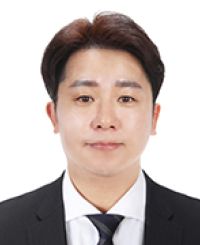Research
Dr. Kim’s projects focus on the cellular and molecular mechanisms within neural circuits that are associated with obesity-related diseases, including cardiovascular disease and non-alcoholic fatty liver disease (NAFLD). He currently investigates the alteration of neuronal/glial activity and the mechanism of interaction between neurons and glia in the forebrain during development of metabolic disease. To achieve this, Dr. Kim applies a variety of techniques in obese and transgenic murine models including molecular biology and histological approaches, chemogenetic manipulations of neuronal/glial activity, and integrative cardiovascular/metabolic physiology. His overall long-term career goal is to elucidate the central regulatory mechanisms underlying metabolic regulation in healthy and disease states.
Grants
Ongoing Research Support
Sponsor: American Heart Association, 04/01/22-03/31/2025
Award ID: 932522
Project title: Role of forebrain TLR4-mediated microglia activation in obesity-induced hypertension
Role: PI
The overall goal of this grant is to examine TLR4 mediated microglial activation and subsequent alterations in microglia-neuronal function mediate hypertension development during obesity. The final goal is to address the growing global problem by providing a new understanding of the mechanisms involved in obesity-induced neurogenic hypertension.
Completed Research Support
Sponsor: National Research Foundation of Korea, 11/01/2015-10/31/2018
Award ID: NRF-2015R1C1A1A01054848
Project title: Study for action of secretory protein in the endoplasmic reticulum during its release process
Role: PI
The overall goal of this grant was to examine factors important for neuronal development, differentiation and protection and potential new mechanisms of action with the purpose of identifying novel therapeutic targets for neurodegenerative diseases.
Awards
- 2011: Startup Competition Award, University of Ulsan
- 2012: Award-winning posters, Korean Endocrine Society
- 2014: Travel award, International Congress of Neuroendocrinology
- 2014: Excellent poster award, Korean Society for Molecular and Cellular Biology
- 2017: Excellent poster award, Korean Society for Molecular and Cellular Biology
- 2017: Best poster presentation award, Korean Neuroendocrine Study Group & INF-Korea Branch
- 2018: Liberal Arts Outstanding Teaching Award, University of Ulsan, South Korea
- 2020: Post-Doctoral Research Recognition Award, American Physiological Society, Cell and Molecular Physiology Section
- 2020: Art of Science Award, George Washington University School of Medicine and Health Sciences
- 2022: Research recognition Award, American Physiological Society, Neural Control & Autonomic Regulation Section
Teaching
- Systems Physiology (BMSC8212)
Role: Lecturer
Center and Institutes
- GW Institute for Biomedical Sciences
Community Service
N/A
